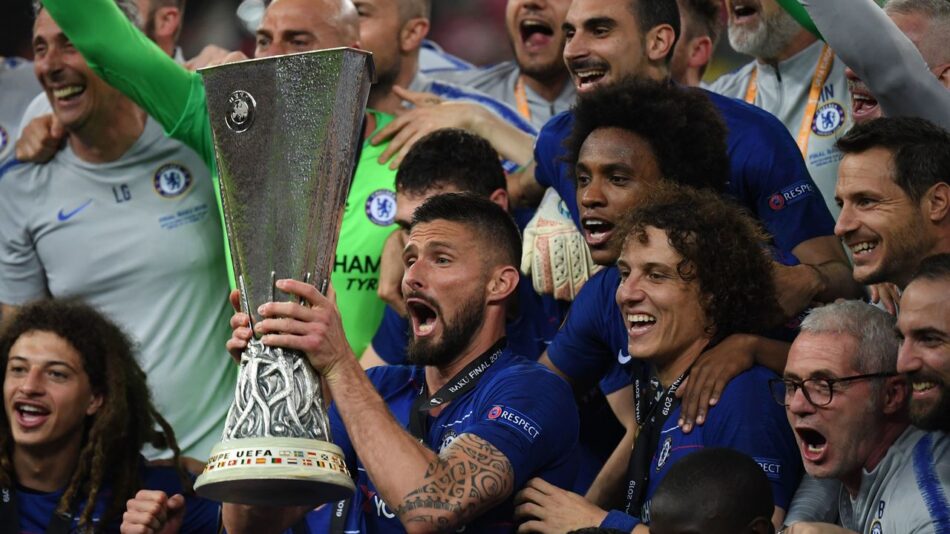The Europa League resumes following a five-month hiatus. Most of the remaining last-16 ties will be contested at the originally scheduled venues before the tournament shifts to Germany. Here are 10 storylines to follow.
Will the revised format cater to unpredictability?
The global pandemic threw Europe’s footballing calendar into disarray, and UEFA responded by making the semifinals, quarterfinals, and remaining last-16 ties one-match affairs.
Four venues in Germany’s North Rhine-Westphalia region will host the quarterfinal stage and beyond, with the final held at FC Koln’s RheinEnergie Stadion on Aug. 21. It’s impossible to foresee what influence the altered scheme and truncated schedule will have, or if the international tournament-style format will better suit the continental minnows or heavyweights. There’s only one way to find out.
Can England, Spain continue their dominance?
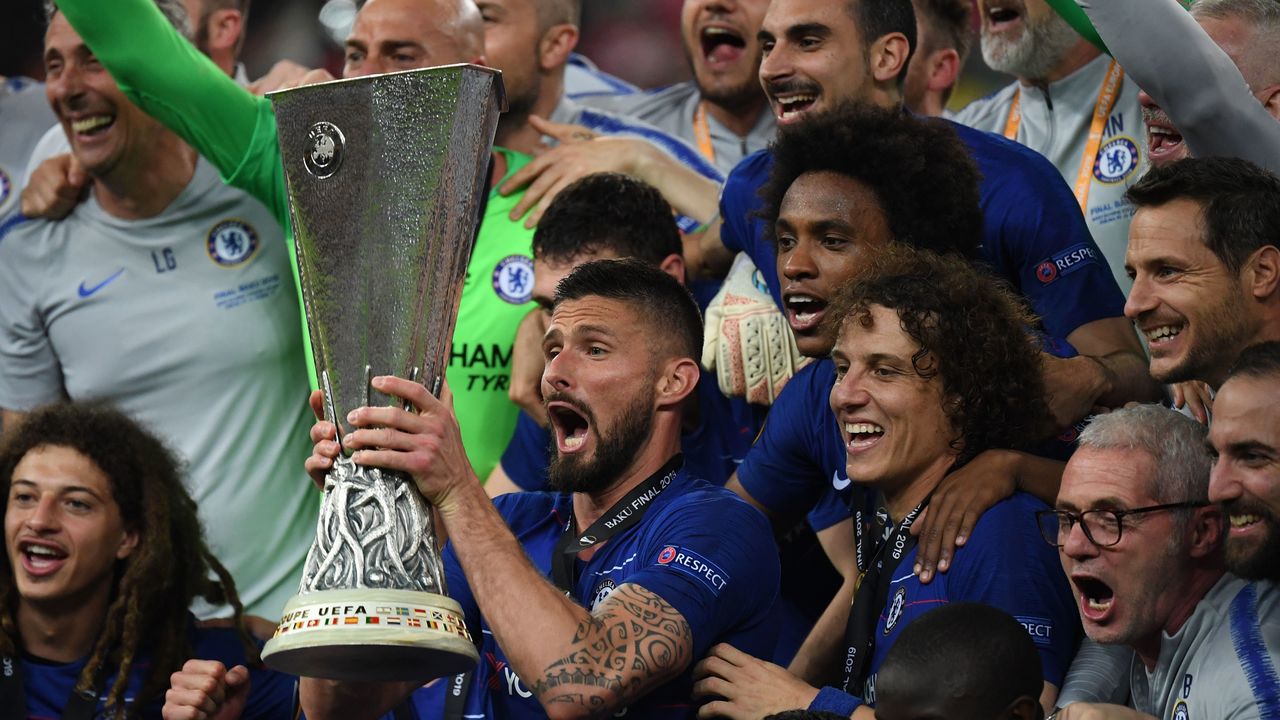
Sevilla (three titles), Chelsea (two), Atletico Madrid (two), and Manchester United have won the last eight iterations in what’s been a bright spell for English and Spanish sides. How likely is the trend to continue?
Manchester United and Wolverhampton Wanderers will represent England, while Sevilla and Getafe will fly the Spanish flag. United are favorites to win for a second time in four years and are all but certain to seal progression following a 5-0 battering of Austrians LASK in the first leg of their last-16 tilt in March.
Sevilla and Wolves feature on the same side of the Red Devils’ bracket ahead of respective dates with Roma and Olympiacos. Getafe is the sole entrant on the other side, and it doesn’t look good for the Madrid outsiders tasked with besting Inter Milan after winning just one of 11 La Liga tests since the restart.
Are United, Inter on a collision course?
Speaking of United and Inter, much of the hype surrounding the resumption of the Europa League campaign is a tantalizing potential final between the two behemoths better accustomed to Champions League play.
United appear set for a quarterfinal clash with the victor of Copenhagen versus Istanbul Basaksehir, which should see Ole Gunnar Solskjaer’s lot book a last-four appointment with one of Olympiacos, Wolves, Sevilla, or Roma.
Inter flaunt a facile route to the showpiece match, with Bayer Leverkusen the strongest of a cluster that also includes Shakhtar Donetsk and Eintracht Frankfurt. Antonio Conte’s first European trophy as a manager beckons.
Can Ocampos lead Sevilla to yet another title?
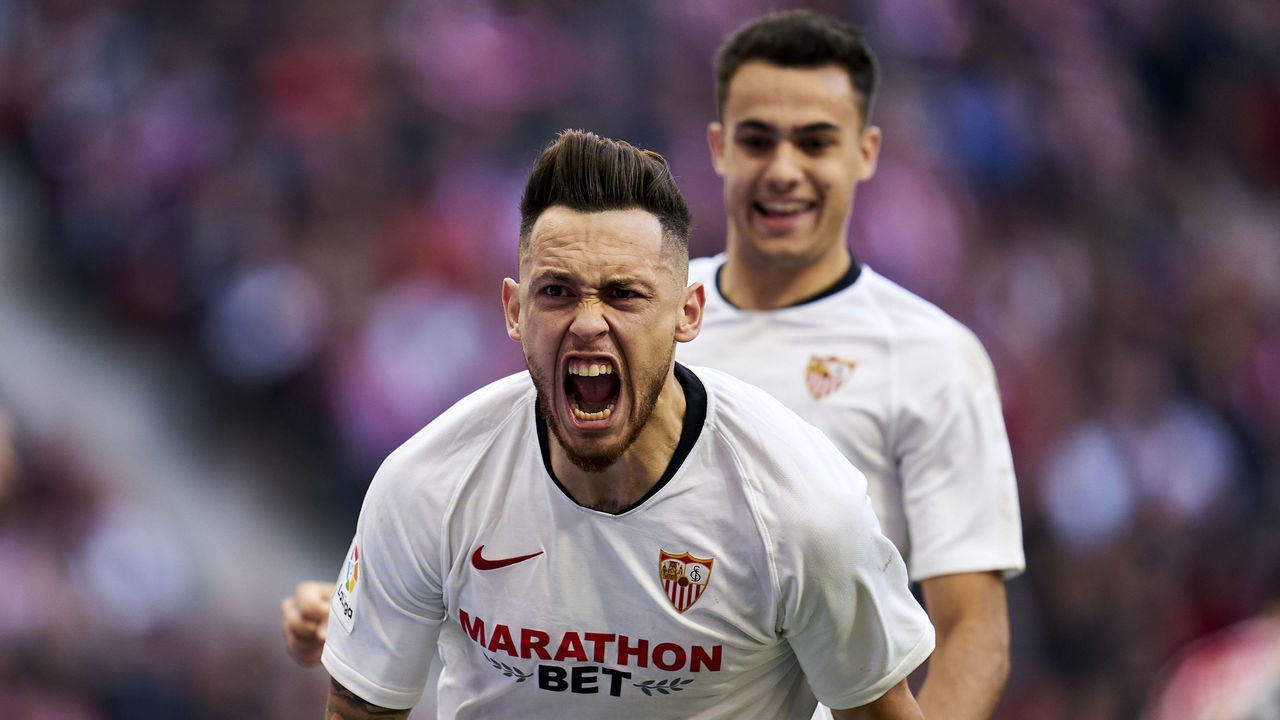
Sevilla’s continental exploits largely go underappreciated despite a record five titles, so perhaps it’s fitting that Lucas Ocampos’ fantastic and unexpected debut season is flying under the radar.
Ocampos has turned heads following his summer switch from Marseille, as his 14 league goals equal the output from his final three years in Ligue 1.
The 26-year-old is an ideal muse for Julen Lopetegui’s approach. Ocampos’ capacity to penetrate enemy lines and interchange between wide roles caters both to the preferred possession-based approach as well as the counterattack. He’s one of a handful of players who could make this tournament their own.
Who is primed for a breakout?
Devotees of emerging talent need look no further than the resumption of the Europa League for a slew of breakout stars. Chief among them is United’s two-footed, clinical finisher, Mason Greenwood. The 18-year-old has scored five times in the competition and is drawing comparisons to Robin van Persie.
Similarly, Eintracht Frankfurt attacking midfielder Daichi Kamada, 23, has made a name for himself with a tournament-best six goals. He’s also capable of jaw-dropping moments of creative brilliance. Getafe’s versatile left-sided anchor Marc Cucurella continues to perform at a high level under the watchful eye of Europe’s biggest suitors, while Leverkusen center-back Edmond Tapsoba and winger Moussa Diaby, both 21, are a delight to watch.
Will Bayer benefit from familiar confines?
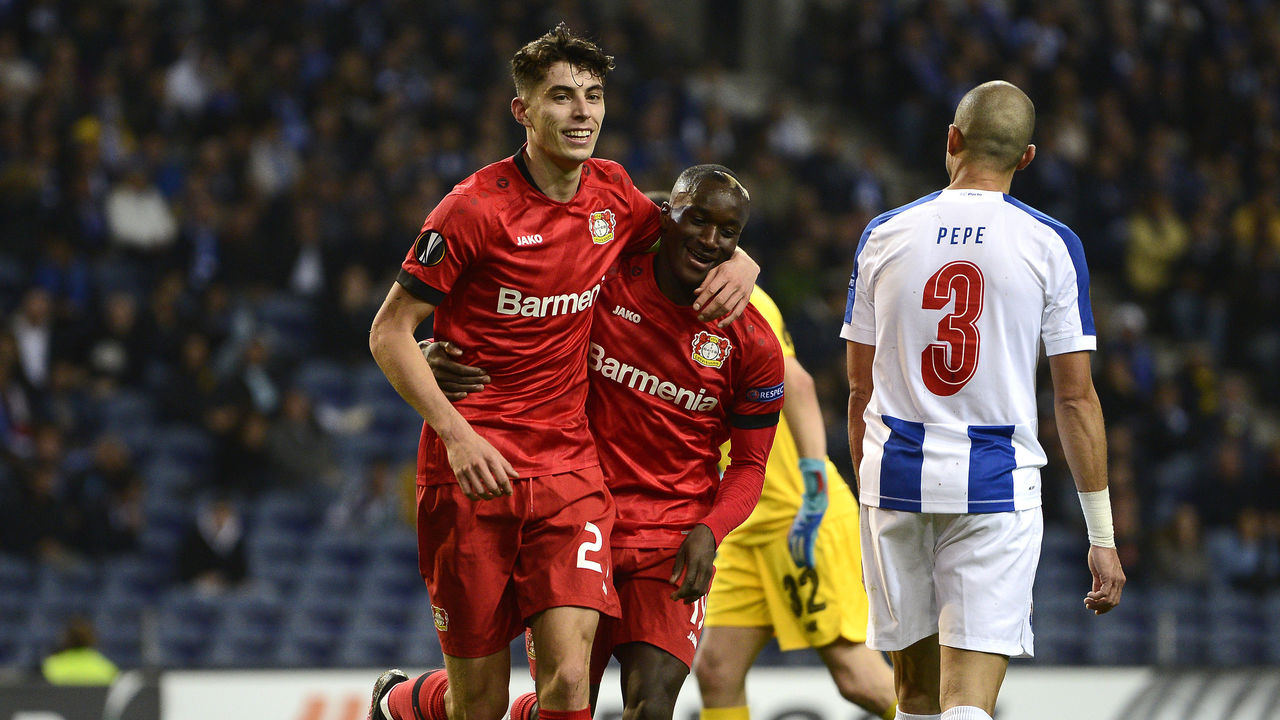
With Kai Havertz seemingly putting off a move to Chelsea until after Leverkusen’s continental campaign, Peter Bosz’s side will consider itself a realistic challenger for a first piece of European silverware since its 1987-88 UEFA Cup triumph.
Assuming Bayer see out the second leg of their last-16 tie with Rangers after the 3-1 victory in Scotland five months ago, playing across the Rhine river at the RheinEnergie Stadion for the quarterfinals should be to their benefit. The usually unfriendly confines down the road in Cologne will be familiar to the Bundesliga side and could provide an edge in a makeshift competition due for some surprises.
Which teams merit dark-horse status?
Dnipro, Fulham, Athletic Bilbao, and Braga have all contested finals in the last 10 years, as the continent’s secondary competition lends itself to unlikely runs typically unseen in the Champions League. This time around, Basel, Olympiacos, and Istanbul Basaksehir all fit the profile of a dark horse.
Swiss giants Basel outscored opponents 19-4 in the group and knockout stage thus far, and they boast a healthy edge over Eintracht Frankfurt after a 3-0 win in the first leg of the round of 16 tie. Greek champs Olympiacos steamrolled domestic foes en route to an unbeaten season highlighted by a stingy nine goals conceded in 26 games. They also knocked Arsenal out of Europe at the last-32 stage.
First-time Turkish winners Istanbul Basaksehir might be the most compelling underdog. Okan Buruk’s charges topped a quartet that featured Roma and Borussia Monchengladbach, and Bosnian winger Edin Visca is joint-top in the competition with six goals. There’s also no shortage of wisdom in a team that relies on the likes of Gael Clichy, Martin Skrtel, Mehmet Topal, and Demba Ba. Underestimate them at your own peril.
Can Shakhtar Donetsk count on stalwarts?
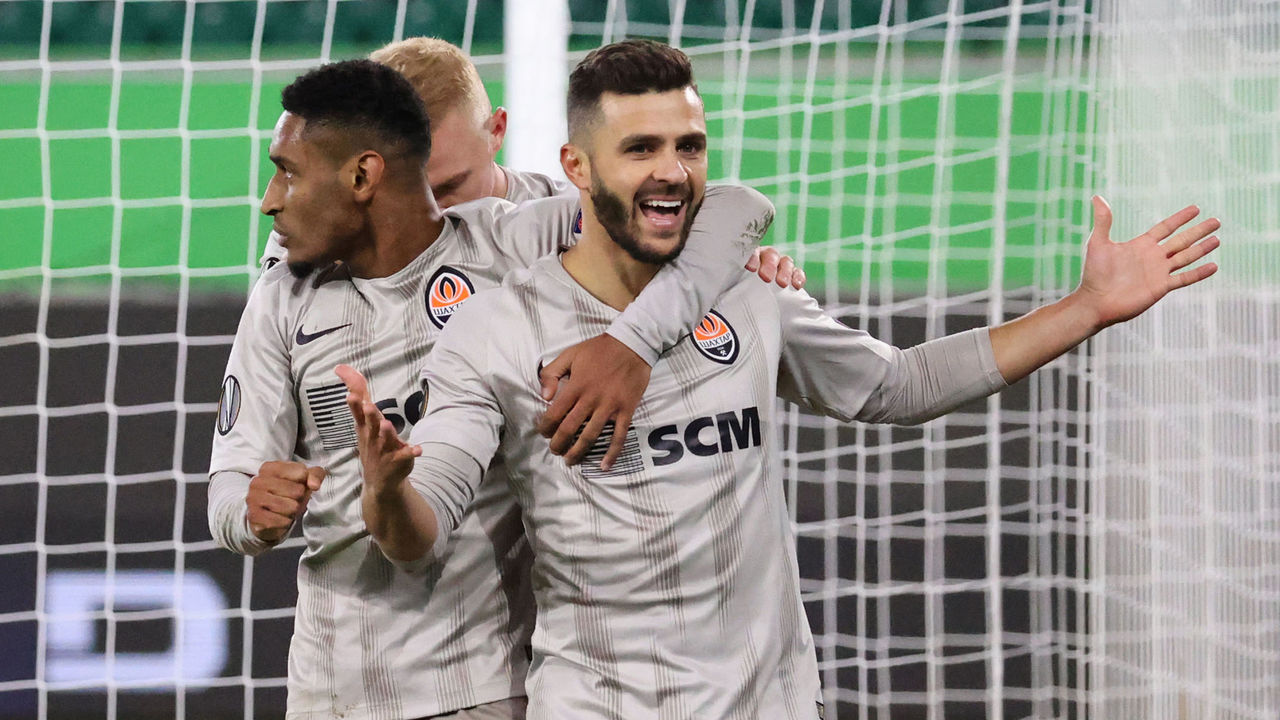
Ukrainian behemoths Shakhtar Donetsk are no dummies when it comes to Europe, progressing to the knockout stage of one of the continent’s two competitions in each of the last seven seasons.
Influential contributors like Taison, Taras Stepanenko, Marlos, Mykola Matviyenko, familiar shot-stopper Andriy Pyatov, and others remain from the 2015-16 side that lost in the semis to eventual winners Sevilla. With veteran Brazilian left-back Ismaily injured, countryman Dodo will be counted on to deliver probing runs from the other full-back position, and the 21-year-old youth international certainly looks the part. So too do Junior Moraes and Alan Patrick following their respective displays in the 2-1 first-leg win at Wolfsburg. Yevhen Konoplyanka is also in the team. Remember him?
A home match with Wolfsburg awaits Luis Castro’s men ahead of a potential quarterfinal duel with either Basel or Eintracht. Don’t be shocked if there’s a Ukrainian side in the semifinals for the third time in six years.
Can Roma continue their sneaky-good form?
Roma are another perennial European entry being overlooked. Paulo Fonseca’s men head into the last-16 one-off having won seven of their last eight in Serie A, scoring at least twice in each of those fixtures.
Nicolo Zaniolo has returned from a ruptured cruciate ligament, and if the 21-year-old’s expo at Juventus last weekend in his first start since January is any indication, defenders beware. Roma also appear to have a better grasp of Fonseca’s pressing system than earlier in the term, and the inexhaustible Edin Dzeko finished the domestic season in sharp form with two goals, two assists, and a pair of Man of the Match showings in his last four outings.
Roma still can’t defend set pieces, but their enterprises in open play are menacing enough to ruffle some feathers in a challenging bracket.
Will a deep, talented attack carry Wolves?

Much has been made of Wolves using the fewest players in the Premier League this season (21), but it’s a figure that misrepresents Nuno Espirito Santo’s options in attack heading into the second-leg clash with Olympiacos at the Molineux.
Raul Jimenez and Diogo Jota, the latter of whom shares the tournament lead in scoring, are assured to start as part of Santo’s preferred 3-4-3 setup, and Pedro Neto and Adama Traore present the Portuguese gaffer with options covering the gamut of attacking virtues.
The X-factor could be Daniel Podence, who has acclimated swiftly to his countryman’s tutorship following a January move from Olympiacos. Podence, who relishes one-on-one situations like teammate Traore, is a deft dribbler and an annoyance to mark. He can make the difference both with his on-pitch performance and some insider knowledge of his former employers.

